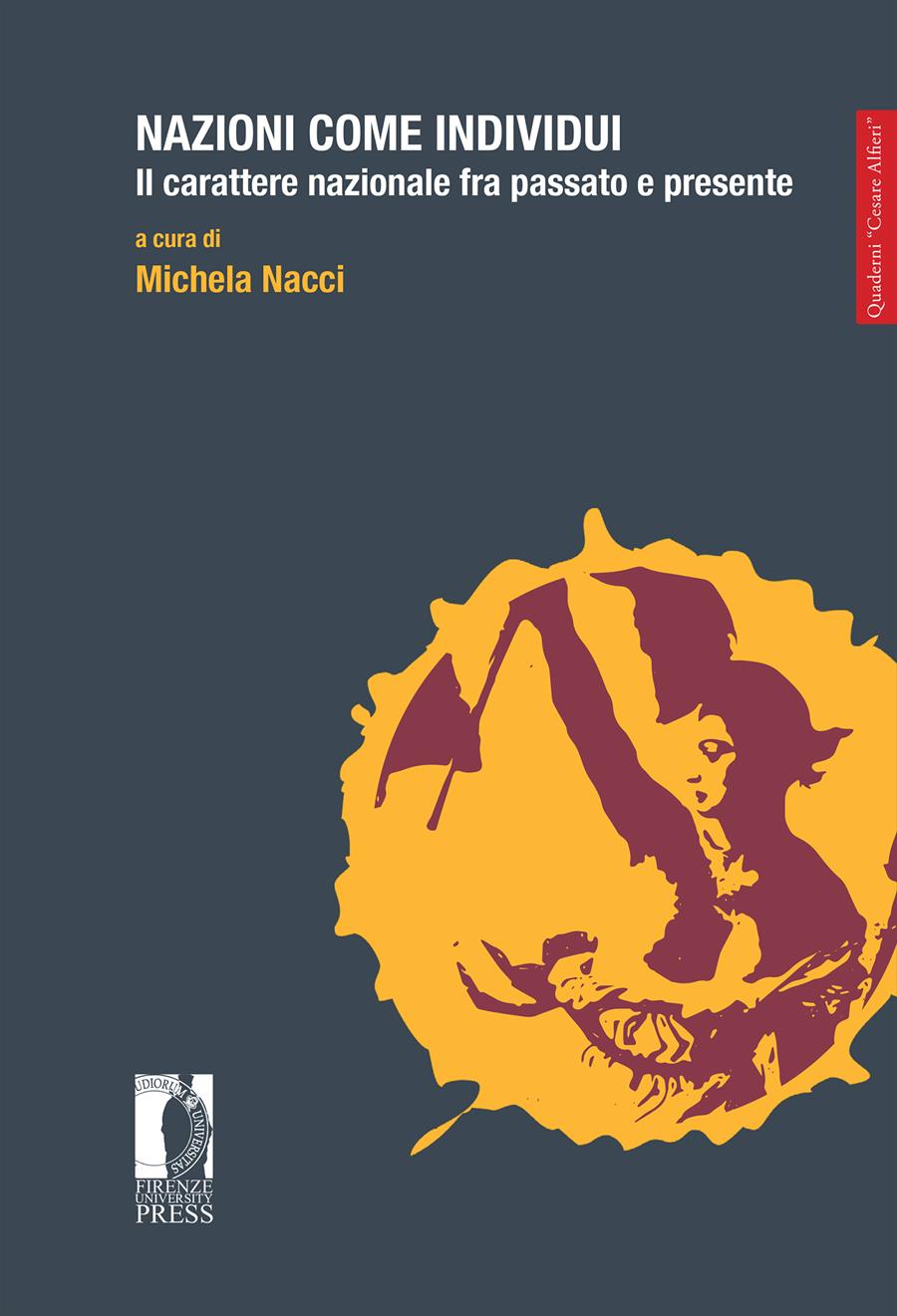- Nazioni come individui
- Edited by Michela Nacci
Milieu et peuples. Entre les traités hippocratiques et Aristote
- Catherine Darbo-Peschanski
- © 2020 Author(s) |
- CC BY 4.0
- DOI: 10.36253/978-88-5518-160-0.02
The article compares some of the so-called Hippocratic treatises and Aristotle’s Physics, Meteorologics, Ethics and Politics, on what would define a human community, if not a nation. It shows a common absence of the notions of climate and environment but a close way of conceiving the physical continuity between the outside world (immediate or more distant) and the inside of living bodies. Then, the external conditions (seasons, temperatures, nature of the soil) similarly determine the complexions and characters of the populations that experience them. Divergences occur due to the determinism of the external conditions on politics. The Hippocratic treaties do not recognise this, unlike Aristotle, except that the Stagirite excludes from this determinism the Greek City and the virtues, including the civic virtue of justice.
- Keywords:
- Human groups,
- Physical continuity,
- Determinism of external conditions,
- Ethics,
- Politics,
CNRS, French National Centre for Scientific Research, France
- Aristote, De la génération des animaux, Texte établi et traduit Par P. Louis, Les Belles Lettres, CUF, Paris 1961.
- Aristote, De la generation et la corruption, texte établi et traduit par M. Rached, Les Belles Lettres, CUF, Paris 2005.
- Aristotle, Physics, a revised text with introduction and commentary by W. D. Ross, Clarendon Press, Oxford (1936 [1998]).
- Aristote, La physique, introduction de L. Couloubaritsis, traduction A. Stevens, Vrin, 2ème édition corrigée, Paris 2008.
- Aristotele Fisica, a cura di R. Radice, Bompiani, Milano 2011.
- Aristote, Météorologiques, texte établi et traduit par P. Louis, Les Belles Lettres, CUF, Paris 1982.
- Aristote, Politiques, texte A. Dreizehnter, Wilhelm Fink Verlag, Münich 1970; traduction, introduction, bibliographie, notes P. Pellegrin (nouvelle édition), GF-Flammarion, Paris 2015.
- Aristotele. Opere 8. Politica, trad. R. Laurenti, Laterza, Roma-Bari 2019.
- Aristotelis, Ethica Nicomachea, Recognovit brevique adnotatione critica instruxit I. Bywater, OUP, Oxford 1894.
- Aristote, Nicomachean Ethics, Translation, introduction and commentary, S. Broadie, C. Rowe, OUP, Oxford 2002.
- Aristote, Éthique à Nicomaque, traduction et présentation par R. Bodeus, GF-Flammarion, Paris 2004.
- Aristotele, Opere 6. Etica Nicomachea, trad. C. Natali, Laterza, Roma-Bari 2019.
- Hippocrate, Ancienne Médecine, Hippocrate Tome II Ière partie, texte établi et traduit par J. Jouanna, Les Belles Lettres, CUF, Paris 1990.
- Hippocrates, Ancient Medicine, in Hippocrates Volume I, Translated by W.H.S. Jones, Loeb Classical Library, Harvard University Press, Cambridge M.-London 1923.
- Hippocrates, Airs, Waters, Places, in Hippocrate Vol. 1, transl. W. H. S. Jones, Loeb Classical Library, Harvard University Press, Cambridge M.-London 1923.
- Hippocrate, Des airs, des eaux et des lieux, trad. et présentation de J. Jouanna et C. Magdelaine, Hippocrate et l’Art de la médecine, GF-Flammarion, Paris 1999.
- Hippocrate, Des lieux dans l’homme, in Hippocrate Tome XIII, texte établi et traduit par R. Joly, Les Belles Lettres, CUF, Paris 1978.
- Hippocrates, Places in Man in Hippocrates Volume VIII, Edited and translated by P. Potter, Loeb Classical Library, Harvard University Press, Cambridge M.-London 1995.
- Hippocrate, La nature de l’homme, édité, traduit et commenté par J. Jouanna, Corpus Medicorum Graecorum- CMG I 1, 3, deuxième édition augmentée et corrigée, AKademie Verlag, Berlin 2002.
- Canguilhem G., La connaissance de la vie (1965), Vrin, Paris 2015.
- Jacob C., L’empire des cartes, Albin Michel, Paris 1992.
- Morison B., On Location: Aristotle’s Concept of Place, Clarendon Press, Oxford 2002.
- Staszak J.-F., La géographie d’avant la géographie. Le climat chez Aristote et Hippocrate, L’Harmattan, Paris 1995.
Chapter Information
Chapter Title
Milieu et peuples. Entre les traités hippocratiques et Aristote
Authors
Catherine Darbo-Peschanski
Language
French
DOI
10.36253/978-88-5518-160-0.02
Peer Reviewed
Publication Year
2020
Copyright Information
© 2020 Author(s)
Content License
Metadata License
Bibliographic Information
Book Title
Nazioni come individui
Book Subtitle
Il carattere nazionale fra passato e presente
Editors
Michela Nacci
Peer Reviewed
Number of Pages
158
Publication Year
2020
Copyright Information
© 2020 Author(s)
Content License
Metadata License
Publisher Name
Firenze University Press
DOI
10.36253/978-88-5518-160-0
ISBN Print
978-88-5518-159-4
eISBN (pdf)
978-88-5518-160-0
eISBN (epub)
978-88-5518-161-7
Series Title
Studi e saggi
Series ISSN
2704-6478
Series E-ISSN
2704-5919
